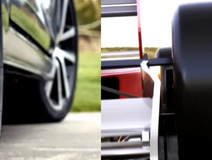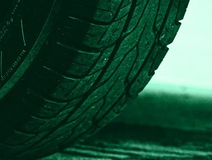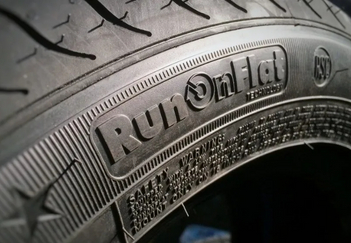
November 29, 2021
Nitrogen in Tyres
In recent years, nitrogen tyres have slowly become more popular. It was once limited to military vehicles, NASCAR racers and aeroplane tyres.
Now, however, even regular drivers are embracing nitrogen-filled tyres. However, nitrogen inflation for your tyres may or may not be suitable for you. Is it something you really need on your daily drive?
Let's discuss the advantages and disadvantages of Nitrogen inflation.

What is Nitrogen?
Nitrogen reduces the tyre's Running Temperature
Nitrogen is an inert gas. It is non-reactive and property-free. It is stable, colourless, odourless, tasteless, and neutral and unreactive when exposed to chemicals. It does not cause anything to break down and corrode. Because of all its properties, it is considered safer to use in high heat conditions.
Why Nitrogen Inflated Tyres?
The air we put into tyres is the same air we breathe: about 79% nitrogen (N2), 20% oxygen (O2), and 1% miscellaneous gases. However, tyres exposed to extreme temperatures like plane or racing tyres purely use 100% nitrogen.
Without oxygen, water won't condense, and you won't have to deal with any water-related issues which can undermine tyre safety and durability. Nitrogen also has many other advantages that have pushed more people to use them on their tyres.
Nitrogen increases Tyre Life
Because the operating temperature of a tyre plays a significant part in how rapidly they wear, temperature reduction at high speeds and loads are beneficial to the life of your tyre.
What are the Advantages of Nitrogen tyres?
Having Nitrogen in your tyres eliminates issues that oxygen may bring, such as oxidation, rusting, and corrosion. Other supposed benefits include:
- They keep your tyres cooler.
Nitrogen-filled tyres won't get hot as fast, but only when you're driving at very high speeds carrying maximum loads, which is ideal if you are in a racing environment but might not be as helpful for everyday urban driving. - They maintain tyre pressure longer.
Most tyre treads are porous, making it easy to leak out smaller oxygen molecules. Since nitrogen molecules are about four times larger than oxygen molecules, their escape rate from the tyre drops considerably, so your tyre pressure will last longer. However, they make no difference in tyre pressure if the tyre is cut or damaged. - They are supposedly Environmentally friendly.
Nitrogen claims to be a green alternative since tyre pressure is constant. The tyre runs smoother with less rolling resistance and becomes more fuel-efficient.
The Disadvantages of Nitrogen tyres
Despite the pros, nitrogen tyres also come with lots of disadvantages which is why we at Tyroola don't recommend it. These include:
- Limited Availability
Unlike compressed air, nitrogen ready petrol stations are hard to find. Only specialist tyre dealers offer them. So, filling up might be an issue. - Expensive
Expect to pay $5 to $10 per tyre if you fill it up with nitrogen vs filling it up with compressed air - which petrol stations provide for FREE!! - Extra maintenance
Despite nitrogen not leaking as much as air, you'll still have to monitor your tyres, just like you would regular tyres. Unpredictable road conditions can still cause a flat. - No Going Back
Once you decide to fill your tyres up with nitrogen, you're stuck with using nitrogen. - Warranty Issues
Different tyre manufacturers have varied policies regarding filling up their tyres with nitrogen. Some embrace it fully, while many do not, so use it at your own risk.
Tyroola's Stand:
Nitrogen inflation is a troubling trend - and a potential marketing scam.
We don't recommend it as it makes no difference in performance or promises regarding the loss of tyre pressure.
We advise you to think about pushing through with it so you don't have to suffer from the disadvantages it may bring along the way.
Learn more about tyres in our guides section and if you need a new set of tyres, click here!



